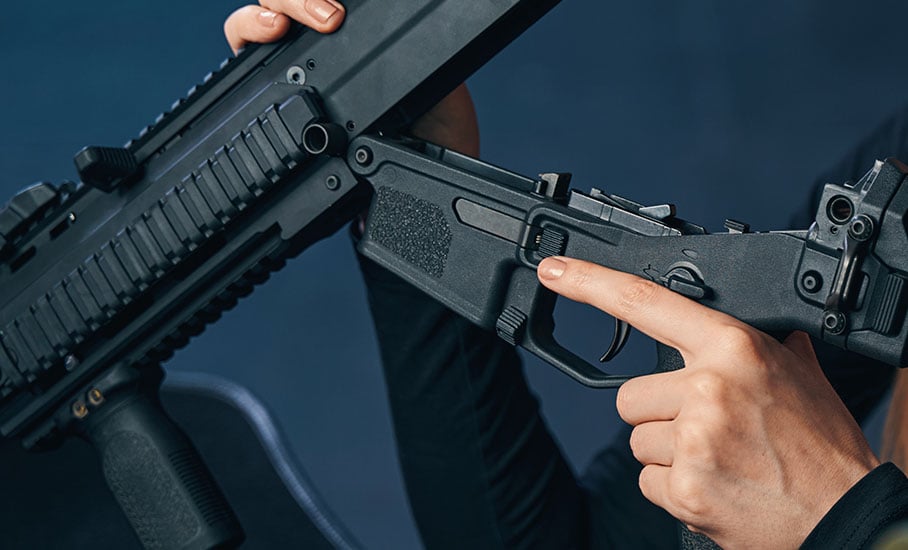Suppose you are building the perfect AR-15—every part locked in with precision, the action buttery smooth, and the trigger? A W.O.T. Trigger, fast, crisp, and ready to fire.
But then, a question crosses your mind: Is it legal? What does the ATF say about it? Let’s unlock this mystery and break down how this trigger is viewed through the lens of U.S. federal law.
What Exactly Is the WOT Trigger?
The WOT trigger—also known as the Wide Open Trigger—is a drop-in AR-15 part designed with lightning-quick resets. It provides semi-automatic guns with an advantage by speeding up firing, resulting in every trigger pull being sharp and quick.
While it doesn't convert your rifle into an automatic weapon, the firing pace can feel almost there. That’s where things get tricky with regulatory agencies like the ATF.
Why the ATF Gets Involved?
The Bureau of Alcohol, Tobacco, Firearms and Explosives (ATF) exists to regulate firearm safety and classification. Anything that even remotely mimics automatic fire is usually reviewed. In recent years, they’ve tightened their scrutiny over trigger technologies that increase firing speed.
Historically, the ATF focuses on the function of a trigger, not just its appearance. Suppose a semi-automatic trigger can produce firing rates similar to a machine gun without manual resets. In that case, it risks being classified as a machine gun part, even if technically it isn't.
The Legal Gray Zone
In several recent cases, the ATF has ruled that specific forced-reset and binary triggers fall into the machine gun category. The WOT trigger was no exception.
Although it operates on a semi-automatic platform, its rapid-fire capability raised questions. Several shipments were seized, and manufacturers received cease-and-desist letters. This triggered widespread confusion among firearm owners and sellers alike.
Still, some shooters continued to look for WOT triggers, unaware that legality now varies depending on federal interpretation and state laws.
Is It Legal or Not?
As of now, the WOT trigger exists in a legal gray zone. The ATF has issued guidance declaring it a machine gun component, but courts have pushed back in some cases, arguing that the ATF cannot redefine terms beyond what Congress allows.
This means legal ownership can depend on:
● Your state's firearm laws
● Whether you acquired the trigger before specific rulings
● How the ATF continues to define and enforce machine gun criteria
Firearm enthusiasts should proceed with caution. The legality of owning or using this trigger may continue to evolve.
Performance vs. Risk
Many prefer the WOT trigger for its performance, claiming better control and smoother operation. Competitive shooters and collectors praise it for improving cycling time and responsiveness.
However, speed can be a liability. If a component makes your rifle behave like an automatic, even unintentionally, the ATF may intervene.
If you’ve seen WOT triggers for sale and considered grabbing one, double-check your jurisdiction. Even a legally purchased trigger could cause issues if the rules change tomorrow.
What Should You Do Now?
Firearm laws are not only complicated—they shift. What's legal one month might become restricted the next. Here's how to stay safe:
● Monitor ATF updates and legal news
● Consult with a firearms attorney before modifying your rifle
● Avoid altering the trigger in ways that increase the rate of fire
● Keep purchase records and documentation
Staying informed is your best protection. Always assume responsibility for every upgrade.
Conclusion
The world of firearm innovation never slows down—and neither does the law. As the line between semi-automatic and automatic blurs, regulators like the ATF are adjusting their stance. That means trigger systems like the W.O.T. Trigger sit in a legal tug-of-war between technology and federal law.
So, where does that leave you? Imagine the satisfaction of perfecting your build, only to wonder if it could get seized. That's the uneasy truth many firearm enthusiasts face today. If you're looking into W.O.T. Trigger upgrades, tread carefully—know the law, respect the regulations, and stay alert to changes.
Because sometimes, the trigger you pull isn’t the only one that matters.

